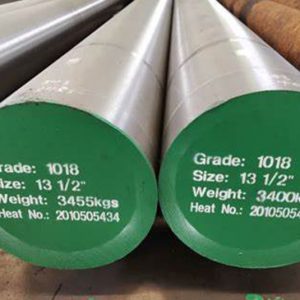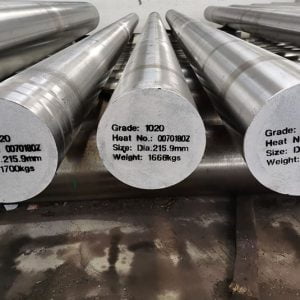Introduction

The manufacturing industry constantly evolves, driven by the need for stronger, more durable, and more efficient materials. Special Steel has emerged as a critical material in modern manufacturing due to its unique properties and versatility. This comprehensive guide explores the various benefits of Special Steel, its applications, and how it contributes to advancements in manufacturing processes.
Understanding Special Steel
What is Special Steel?
Special Steel, also known as alloy steel, is a category of steel that contains additional alloying elements such as nickel, chromium, and vanadium. These elements impart enhanced mechanical properties and resistance to environmental factors compared to standard carbon steel.
Types of Special Steel
- Stainless Steel: Known for its corrosion resistance and strength, it is widely used in kitchenware, medical devices, and construction.
- Tool Steel: Characterized by its hardness and resistance to abrasion, ideal for manufacturing tools and dies.
- High-Speed Steel (HSS): Retains its hardness at high temperatures, making it suitable for cutting tools.
- Maraging Steel: A type of high-strength steel with excellent toughness, used in aerospace and tooling.
Key Properties of Special Steel
- Enhanced Strength: Higher tensile strength compared to carbon steel.
- Corrosion Resistance: Superior resistance to rust and corrosion.
- Heat Resistance: Ability to retain properties at high temperatures.
- Hardness and Wear Resistance: Suitable for applications requiring durability.
Applications of Special Steel
Automotive Industry
Special Steel is essential in manufacturing automotive components due to its strength, durability, and resistance to wear and tear. Applications include:
- Engine Components: High-speed steel and stainless steel are used for engine parts that require high strength and heat resistance.
- Body Frames: Advanced high-strength steel (AHSS) is used to improve crashworthiness while reducing weight.
- Suspension Systems: Tool steel provides the necessary hardness for suspension springs and shock absorbers.
Aerospace Industry
The aerospace sector relies heavily on Special Steel for its high performance and reliability. Key applications include:
- Aircraft Frames: Maraging steel and high-strength stainless steel are used for structural components.
- Engine Parts: High-speed steel and nickel-based alloys ensure engine components can withstand extreme temperatures and stress.
- Landing Gear: Special Steel’s toughness and impact resistance are critical for landing gear assemblies.
Construction Industry
In construction, Special Steel offers durability and resilience, making it ideal for:
- Structural Beams: Stainless steel and high-strength low-alloy (HSLA) steel are used in constructing skyscrapers and bridges.
- Reinforcement Bars: Tool steel and alloy steel are used for reinforcing concrete structures.
- Facade Elements: Corrosion-resistant stainless steel is preferred for aesthetic and long-lasting building facades.
Medical Devices
The medical field benefits from the biocompatibility and sterilization properties of Special Steel:
- Surgical Instruments: Stainless steel is commonly used for scalpels, scissors, and forceps due to its sterilization compatibility.
- Implants: Special alloys like titanium steel are used for implants, offering strength and biocompatibility.
- Diagnostic Equipment: High-precision components made from tool steel are essential for diagnostic machines.
Energy Sector
Special Steel is integral to the energy industry, especially in harsh environments:
- Oil and Gas: Stainless steel and duplex steel are used in pipelines, drilling equipment, and offshore platforms for their corrosion resistance.
- Power Plants: High-temperature steels are used in boilers and turbines to enhance efficiency and longevity.
- Renewable Energy: Special Steel components are used in wind turbines and solar panel supports.
Advantages of Using Special Steel
Enhanced Mechanical Properties
The addition of alloying elements in Special Steel significantly enhances its mechanical properties, making it suitable for high-stress applications. The table below highlights the mechanical properties of some common types of Special Steel:
| Type of Special Steel | Tensile Strength (MPa) | Yield Strength (MPa) | Hardness (HB) | Corrosion Resistance |
|---|---|---|---|---|
| Stainless Steel | 485-620 | 170-310 | 150-200 | Excellent |
| Tool Steel | 500-1300 | 300-1000 | 200-400 | Good |
| High-Speed Steel | 640-1270 | 400-1100 | 200-350 | Fair |
| Maraging Steel | 1400-2400 | 1000-1800 | 320-340 | Good |
Versatility in Applications
Special Steel’s ability to be tailored for specific applications makes it extremely versatile. By adjusting the alloying elements, manufacturers can create steel with desired properties suitable for various industries.
Improved Longevity and Durability
Products made from Special Steel often have a longer lifespan due to their enhanced durability and resistance to environmental factors like corrosion and wear. This longevity translates to reduced maintenance costs and fewer replacements over time.
Cost Efficiency
While Special Steel might have a higher initial cost than regular carbon steel, its durability and reduced maintenance needs can lead to cost savings over the product’s life cycle. For industries where equipment failure is not an option, this cost efficiency is invaluable.
Environmental Benefits
Using Special Steel can contribute to sustainability efforts. Its longevity means fewer resources are used in manufacturing replacements, and its recyclability reduces environmental impact. Many types of Special Steel are also designed to be more energy-efficient in production.
Challenges and Considerations
Cost of Raw Materials
The alloying elements used in Special Steel, such as nickel and chromium, can be expensive. This can make the initial cost of Special Steel higher than traditional carbon steel.
Manufacturing Complexity
The production process for Special Steel is more complex, requiring precise control of alloying elements and heat treatment processes. This complexity can lead to higher manufacturing costs and longer production times.
Specialized Knowledge and Equipment
Working with Special Steel often requires specialized knowledge and equipment, which may necessitate additional training for workers and investment in new machinery.
Future Trends in Special Steel Manufacturing

Advancements in Alloy Development
Research is ongoing to develop new alloys that offer even better performance characteristics. Innovations in metallurgical processes will continue to enhance the properties of Special Steel, making it suitable for even more demanding applications.
Sustainable Production Techniques
As environmental concerns grow, the steel industry is focusing on more sustainable production methods. This includes reducing carbon emissions during manufacturing and increasing the use of recycled materials.
Integration with Smart Manufacturing
The rise of Industry 4.0 is bringing smart manufacturing techniques to steel production. Technologies like the Internet of Things (IoT), artificial intelligence (AI), and machine learning are being integrated to optimize production processes and improve the quality of Special Steel.
Customized Steel Solutions
There is a growing trend towards customization in steel manufacturing. Advances in technology allow for the development of Special Steel grades tailored to specific customer requirements, providing bespoke solutions for unique applications.
Conclusion
Special Steel plays a pivotal role in modern manufacturing, offering unparalleled advantages in terms of strength, durability, and versatility. Its applications span various industries, from automotive and aerospace to construction and medical devices. Despite the challenges associated with its production and cost, the benefits of Special Steel make it an invaluable material in today’s industrial landscape. As technology advances, the use of Special Steel is set to expand, driving further innovation and efficiency in manufacturing processes.
FAQ
What is the difference between Special Steel and regular carbon steel?
Special Steel contains additional alloying elements like nickel, chromium, and vanadium, which provide enhanced properties such as increased strength, corrosion resistance, and heat resistance compared to regular carbon steel.
Why is Special Steel more expensive than carbon steel?
The higher cost of Special Steel is due to the expensive alloying elements and the more complex manufacturing processes required to produce it. However, its durability and performance can lead to cost savings over its lifecycle.
Can Special Steel be recycled?
Yes, Special Steel is highly recyclable. Recycling Special Steel helps reduce the environmental impact and lowers the demand for raw materials.
What industries benefit the most from using Special Steel?
Industries that benefit the most from using Special Steel include automotive, aerospace, construction, medical devices, and energy sectors due to the material’s enhanced properties and performance.
How does Special Steel contribute to sustainability?
Special Steel contributes to sustainability by offering long-lasting performance, which reduces the need for frequent replacements and maintenance. Additionally, its recyclability helps minimize environmental impact.
Are there any advancements in Special Steel production?
Yes, advancements in alloy development, sustainable production techniques, smart manufacturing integration, and customized steel solutions are some of the trends driving the future of Special Steel production.









